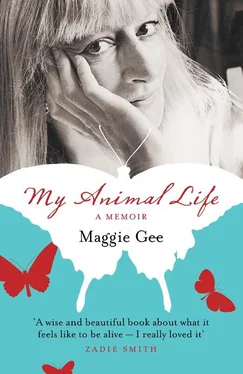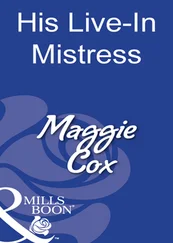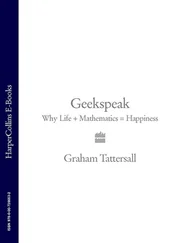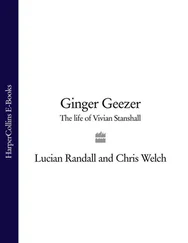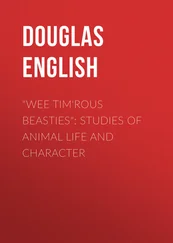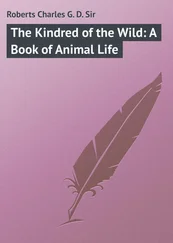If you had told me then what I slowly learned, over the next twelve months of grim education — that my book would be turned down by almost every mainstream literary publisher in London — I do not believe I could have taken it in. It would have been unthinkable.
I have already confessed I was not careful enough. The book was a little windy and baggy. It needed a good hard edit, another three months of thought and work. Yes, I was also unwise in my tactics, expecting to change agents and publishers at random. I am trying to give weight to the many factors that contributed to my book becoming homeless, for I do believe that, as with homeless people, the problem was too many factors colliding. But I still come to this conclusion: the novel was turned down partly, perhaps mainly, because the subject was unacceptable. Britain didn’t want to think about racism. It wasn’t ready, though one day it would be. In 1995, publishers turned their backs.
The rejection letters were curious. Too long, too insulting or self-justifying, some just inappropriate: one editor remarked that she ‘simply disagreed’, though generally you don’t disagree with a novel. Many of them used the same adjectives; ‘dark’ was a favourite, which should have been amusing. I put them, one by one, in a file under the desk, and after a few, I wrote ‘DISASTER’ on the cover. As with one miscarriage, you become more prone to fearfully anticipate a second. I was more afraid each time the new agent sent it out, but still I took each letter as a blow to the heart, unwilling to believe it, raging, protesting. (Poor Nick. He could not have been more tested. But he took it all. He was my rock.)
And, as I already mentioned, a kindly acquaintance, Di Marcus, to whom I will always be grateful, said, ‘This is when character tells.’ My friends: how much they have taught me and helped me. But I wasn’t so sure that my character would help me. I felt weak, angry, fatally wounded.
What resources did I have that helped me to survive? My husband, Rosa, and the self-belief my parents gave me when I was a child. Nick never faltered; he continued to say, ‘This is your best book. I believe in it.’ In the end I turned on him, furious. ‘You’re deluded. It’s your fault, you should have told me it was hopeless. They can’t all be wrong, surely, can they?’ Stubbornly he kept on insisting they were wrong.
The immediate worries were financial. I had expected a payment of £35,000, the balance owing on my contract, and had run into debt in anticipation, though I hated debt, because of my background. I had a contract; the money must arrive. It didn’t arrive. My overdraft grew. For a year, the agent kept sending the book out. Drip by drip, confidence and hope were eroded.
Some money arrived in dribs and drabs. The first, kind and gentlemanly, agent, the one I should have stayed with, together with Mark Le Fanu of the Society of Authors, leaned on HarperCollins to give me a token pay-off of £5,000. (Later on in the whole protracted saga, the Society of Authors gave me a grant of £3,000 to get me back on my feet again. We authors need our organisations, which line up behind us in hard times; not just the Society of Authors, but Public Lending Right, the stalwart body that collects money from the government whenever people borrow our books from libraries, and ALCS, which protects our copyrights and sends us money we never knew we’d earned. Young writers, join up and support these allies! When you need them, they will be there for you.)
Then an opportune phone call came from Penny Smith, a lecturer at Northumbria University in Newcastle, who liked my work, and taught my novel Grace , inviting me to do a three-month residency up there, two days a week, and despite the travelling, I jumped at it. My friend Barbara lent me £5,000 which at least plugged the hole I had opened up. Neither of us knew it would take me seven or eight years to pay back. And as the year turned, and the rejections kept coming, I began reviewing for my bread and butter. That most painstaking and generous literary editor, John Coldstream at the Daily Telegraph , perhaps getting wind that I was in trouble, started asking me to review regularly: once a month, then twice a month, then almost every week. Without it I couldn’t have paid my share of the mortgage. It kept me alive, and my name in the papers. But my ego was shrivelling, all the same. Everything had changed. Perhaps I was … finished.
Depression overwhelmed me; I felt I was drowning. Instead I made myself get up every day and go swimming at the Willesden Sports Centre just down the road, in the very early morning, so that by the time I came home to the emptiness, something good at least had happened, one good thing a day, however small. There was blood in my cheeks, and breath in my body, and the glow that comes with having exercised. My mind and its ambitions had led me astray; my body, recovering its strength, saved me. I put my trust in it, my animal body. I was swimming more lengths: fifty, eighty. I was my father’s daughter. I would go on .
I asked writers of colour to read the novel. I feared they would hate it, like everyone else, but to them, of course, the racism I wrote about was not unbelievable, nor even remarkable, it was just part of the substance of their days. I was given much-needed encouragement by the novelist Mike Phillips, then writer-in-residence at the South Bank, by Bernardine Evaristo, author of The Emperor’s Babe and Blonde Roots , and by Colin Grant, Marcus Garvey’s biographer. I will never forget their kindness, for their own paths as writers were not entirely easy, but they all took the time to read that long novel, in manuscript, closely and critically, and sent me with advice and a blessing on my way. I needed their critique, but even more, their blessing. It was all I had to keep the show on the road.
But I still felt terrible shame and unease when other people asked about my writing. I was unable to admit I had been rejected. Yet my internal landscape was slowly shifting. I had been rejected. So what would I do now? The tall agent was becoming more languid, and talked, one day when I went to see him, about another author, very well-known, who had written a book that was turned down. ‘He decided in the end he had to let it go.’ The lesson was indirect, but clear enough. Time had slipped on. We were heading fast for 1997, and I hadn’t had a book out since 1994.
Down the road from us a couple, Steve and Suzanne, had moved in with a daughter, Isobel, two years younger than Rosa, and the man, Steve Shill, was a writer and director who later migrated to America and worked on The Sopranos and The Wire . As usual, new friends brought new ideas. ( Never just stay at home and suffer .) Steve lent me a guide to film structure. At the same time, John Coldstream sent me a book to review called The Next 500 Years , by Adrian Berry, an overview of scientific predictions. It was speculative, but fizzed with ideas. The piece of information that excited me most was that, contrary to what I had always assumed, our temperate climate was not the norm; in fact, the earth’s default state was ice. Ice ages lasted for 100,000 years; arrived suddenly, over ten or twenty years; and were interspersed by temperate periods of only 8,000–14,000 years. And it was 12,000 years since the last ice age. The maths were suggestive. My mind started spinning.
With both books in my bag I travelled up to Newcastle to do a session with the creative writing students on ‘Structure’. Structure is the weakness of creative writing courses; only brief pieces of writing can be discussed in a two-hour workshop, so some students become brilliant at writing individual chapters of novels, but have a weak overall grasp of structure or story. (And too many twentieth-century novels are weak on story. Yet story is what readers like, and they’re right, it’s what we need from art: stories to help us navigate the confusion of our own life-stories.) I read Steve’s book on film structure on the train, and liked its vigour. Yes, three acts, like every good drama. With plot points and a mid-point, a swoop up to the climax, a dip to the end — I loved this stuff. I sat on the train and redrafted this structure in terms of a 250-page novel. On which page should the plot points come? And the climax? I made a diagram for the students, and suggested that they try it out.
Читать дальше
